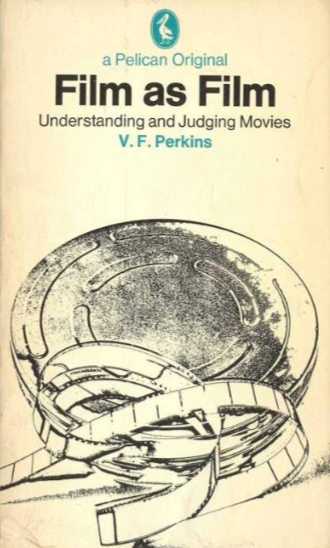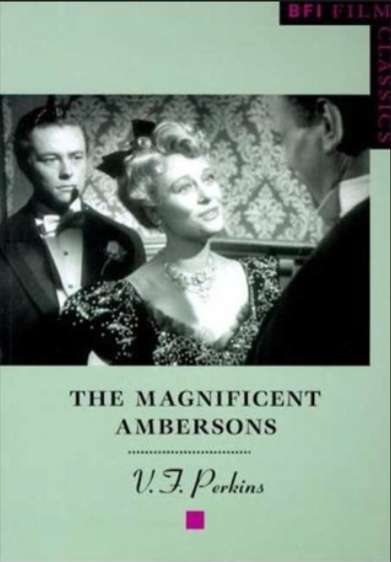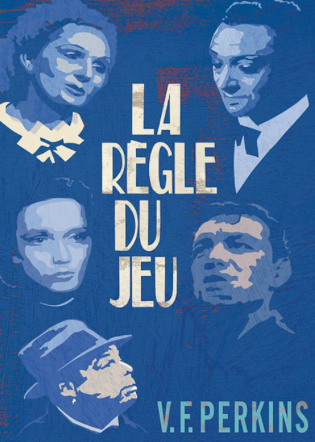Jason Jacobs
Victor was my teacher, then colleague and mentor, and friend. I’m sure many others can speak more eloquently and deeply than I about how it was to be taught by him, to work with him, watch movies with him, enjoy his company and vitality. Amidst the gales of grief this then is what I remember most:
As my teacher (I did undergraduate Film and Lit. at Warwick 86-89) he only taught me for one course, Basic Criticism, in first year. But he was also head of department during my second year and I remember coming to see him in his office early one morning because I was devastated by a romantic catastrophe and utterly distraught. He told me that even though I wouldn’t feel it for a while, the grief would pass, and that was the first of many wise, brief, but lasting things he told me.
I didn’t fully appreciate his work until I came back to Warwick as a lecturer in 1994, and he was my official ‘mentor’ while I was on probation. He had to tolerate one afternoon session a week listening to my inexperienced ramblings and he did so with patience and attention, always nudging thoughts further, correcting gently, telling me the way the world was, as it was then, there. He introduced me to Cavell and then, gradually I shifted the entire approach of my research and sought out his company and conversation hungrily when I could. I told him about how difficult admiration was, and he sent me back to The Lusty Men. Once, when I was overly effusive outside his office, I came back and apologized for ‘being odd’. He told me that he’d accepted his oddities. That alone saved me 20 years of therapy. When we had our first child he bought us the interesting toy (a stringed cats-cradle thingy) he’d chosen for his grandchild. He shared his work with me but always felt awkward with my praise for it.
When I emigrated to Australia in 2000 Victor kept in regular contact. At first that meant letters, including one that detailed his sense of why praise was difficult for him, its origins in the reward of a new bike for passing his 11-Plus and the victimization he experienced at school because of that. Over the past 16 years whenever I’d visit the UK to research at the BBC Archives or come to a conference, I’d always meet Victor. The archives are in Reading and, of course, Victor taught there from 1968-78 as Senior Lecturer and Head of Department of Film Studies, at Bulmershe College of Education. So although sometimes I’d drive up to Coventry to take him out for a meal, most visits he’d get on the train and we’d go out to the local Greek restaurant, Kyrenia, which he enjoyed very much. He’d sop up the sauce of his stifado with the bread. Once was around the time Tessa was dying; I do wish I’d reached out and held his big hand, I hope he knew how much I felt his grief. One visit I’d booked him a room at this hotel and we had time before dinner – he knew well my tendency toward alcohol and suggested we walk along the Thames just outside and look at the swans and geese; we talked aesthetics and the medium and movies; only years later did I realize what he had done to save me (and himself) from drunken stupidity, so glad I was to see him. I’m writing this at the table where, on another visit we shared tea and he told me about his latest Ophuls work, and introduced me to the work of Robert Pippin.
A key highlight of my career was chairing Victor’s paper at the Film Philosophy conference in Oxford in 2015; the one on Wiseman’s ending of High School. I tried to rise to the occasion, but afterwards – struck by its magnificence – I fell weeping into a bewildered Andrew Klevan; I knew something was ending with that ending he spoke so brilliantly to.
We regularly emailed. A few weeks ago I sought out his advice. I had been attacked viciously in the Screen journal, and I remembered how he’d told me his response to Sam Rhodie’s review of Film as Film was ‘written out of hurt’; but, I asked, that response clarified his book so sharply it was worth doing – so what should I do? He sent me a one-line email: ‘There is no rush. Do nothing until you hear from me. V.’ On 26 June he sent a one page document, asking me not to share it since it was merely a draft. If only we could have drafts that crafted, that generous and scalpel-sharp. I’m going to share, against his wishes, its final glorious moments:
‘At issue here is the articulation of value and values in the attempt to describe key aspects of an artistic achievement. The achievement need not be of the highest; it may be qualified by flaws and failures elsewhere in the work. We may need to talk about the excellence of a performance, or the finesse of an isolated sequence, in an otherwise undistinguished movie. Aesthetics goes astray when it concerns itself too much (close to exclusively) with the masterpieces. So it seems to me that it is more useful to think of qualities and achievements (like wit, eloquence, economy, concentration) as values to be celebrated rather than as tests to be undergone. Excellence can be of so many kinds. An evaluative system of criteria is likely to lack the flexibility to accommodate the variousness of artistic merits, since a criterion is of limited utility – it doesn’t do its job as a test – if we cannot tell whether it has been met. (MORE TO FOLLOW)’
I’ve tried to follow Victor’s immense humanizing presence for much of my adult life, and fell short. But… Victor’s happy face, lighting up in that big-lensed smile, as he stepped off the escalator at Reading station and saw me.




